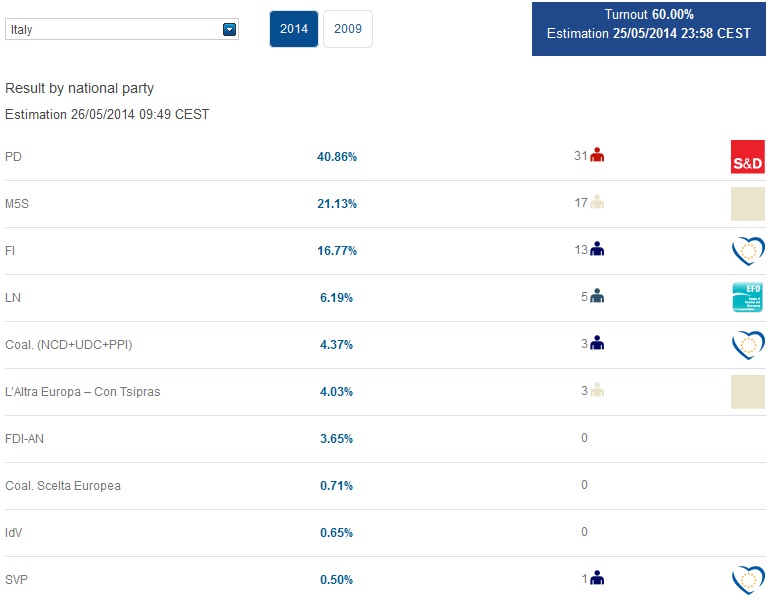 The European Parliament has just started to approach the European stage of Assemblies indicating the head of the Commission. As it is well known (at least, a double-digit minority of European electors is aware of that!) this time the biggest European parties will indicate a candidate to be proposed to electors as the new European Commission President. It is an extraordinary embraceable process, remarkable, not to be taken for granted at all, not for the fact the parties have reached an agreement on the issue, nor for the governments to pursue it – were they be able to keep the grip on their traditional role of de facto decision makers.
The European Parliament has just started to approach the European stage of Assemblies indicating the head of the Commission. As it is well known (at least, a double-digit minority of European electors is aware of that!) this time the biggest European parties will indicate a candidate to be proposed to electors as the new European Commission President. It is an extraordinary embraceable process, remarkable, not to be taken for granted at all, not for the fact the parties have reached an agreement on the issue, nor for the governments to pursue it – were they be able to keep the grip on their traditional role of de facto decision makers.
It is all beautiful, it is all very new, you can discuss about European issues during the campaign, citizens will get closer to the Union supporting a candidate who’s not coming from their own country (at least for the electors of 27 countries). Europe is getting closer to citizens.
Yet, so far after the first step, here come socialists and the EPP, already tempted by proceeding their egemonic tradition over the Parliament, in which they have always distributed presidencies and powers between they two, leaving just the remains to the other parties. Maybe a conditioned reflex has moved some broadcasting channels then, when they organised – according to some draft calendars we have seen – more television debates between the PES candidate and the EPP one, leaving the others at home. And there are other candidates, indeed. Liberals, left and greens, who amount to more than 20 percent of the votes, according to polls (far-right and populist do not have their candidate). True, maybe the next President of the European Commission would be Martin Schulz or Jean-Claude Juncker (yet, I won’t bet on this a remarkable amount of money), yet it is true that there are other impressive candidates, which would be part of television debates at least out of respect for the electors.
Guy Verhofstadt had been the Belgian Prime Minister for nine years, and he has been already been awarded with a rejection to be the head of the Commission, given that Britons think he is too europeist: well, I’m eager to listen to him talking to Mr. Schulz. Alexis Tsipras has been gathering signatures all around Europe in order to submit his list, and it’s a great example of what Europe can be for citizens; in addition, he’s one of the champions of the fight against austerity (which he has won, by the way). I’d really like to see him discussing with Juncker, the (critic) champion of those opting for austerity. And then the Greens, they’re a bit more complicate given that they have two candidates, Ska Keller and José Bovè, they are the only party helding primaries to choose their flagbearers, they are trying to proceed with this remarkable experiment of sharing, they are fighting for the issues connected with our development…I’d also like to listen to them. You know, there’s the risk of having this habit, of big parties have of taking the thunder away from little parties, spread all around Europe. However, the voting system here is proportional representation, and it’s not by chance. There should be room for everyone.
Lorenzo Robustelli












